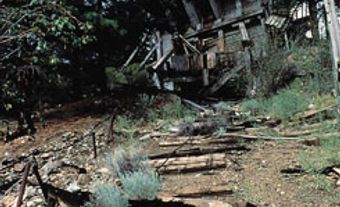Cobalt
Cobalt (Co) is a brittle, hard, greyish-white magnetic metal that melts at 1495°C and that closely resembles iron and nickel. It is not found as a native element. Cobalt is a minor constituent of many of the large copper ore bodies of Zaire and Zambia, but its recovery as a byproduct has made these ores the leading world source for over 50 years. Small quantities of cobalt are also recovered from copper-nickel sulphide ores. The latter, which are the source of most of the world's nickel, are extensively mined in Canada. Small amounts of cobalt occur in the deposits of oxidized nickel found in many countries; eg, New Caledonia, Zaire, Canada and the US. In Morocco and a few other countries, small high-grade deposits of nickel-cobalt arsenides furnish significant quantities of cobalt. Arsenide ores from Cobalt, Ont, gave Canada world leadership in production for the period 1905-25. Cobalt output from this area stopped in 1971 but was reactivated in 1995 as a primary production. A large potential source of cobalt is the manganese nodules on the ocean floor (see Ocean Mining).
The decorative qualities of cobalt compounds, which impart a blue colour to glass and ceramics, have been known for 4000 years. However, it was well into the 20th century before cobalt's remarkable chemical and physical properties were recognized and exploited; eg, in permanent magnets and high-temperature superalloys. One of the major uses for cobalt is superalloyed with iron, nickel and other metals to make Alnico, an alloy that is unusually strong, durable and corrosion-resistant at elevated temperatures, making it useful for jet engines and gas turbine engines for pipeline compressors. Cobalt is essential to livestock, and addition of its compounds to feedstuffs and pastures is widespread where deficiencies occur. The important radioisotope cobalt-60, produced by neutron bombardment of cobalt metal in a fission reactor, is used as a radioactive tracer in chemical, biological or physical processes and as a source of gamma rays for treatment of cancer. Canada produced 2013 t of cobalt as recoverable metal and 6307 t of cobalt in metal production from domestic and foreign sources in 2000.

 Share on Facebook
Share on Facebook Share on X
Share on X Share by Email
Share by Email Share on Google Classroom
Share on Google Classroom

